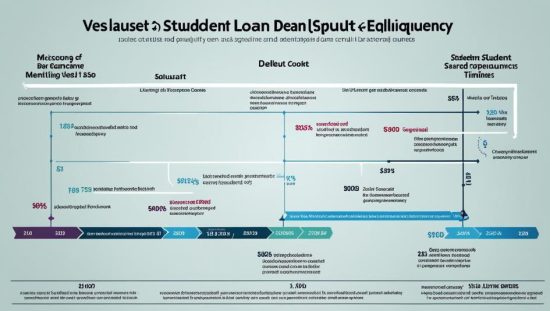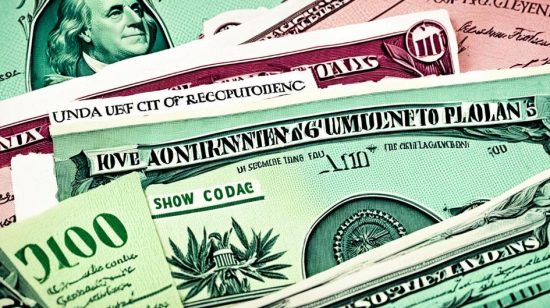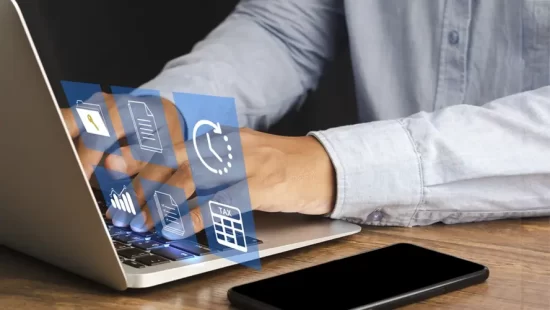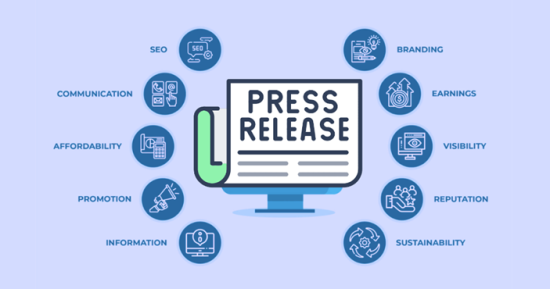
Have you ever wondered what happens if you don’t pay student loans? Does ignoring your student debt really have any consequences, or is it just a common belief? Well, it’s time to unravel the truth and delve into the impact of ignoring your financial obligations. Buckle up as we take you on a journey through the surprising realities and unexpected consequences that may await those who disregard their student loans. Prepare to be enlightened and empowered to take charge of your debt.
The Surprising Reality of Ignoring Student Debt
Many people have misconceptions about what may happen if they fail to pay their student loans. It is important to debunk these myths and understand the stark realities.
Common Misconceptions Versus Stark Outcomes
One common misconception is that ignoring student debt only results in credit damage. While damaged credit is indeed a significant consequence, the reality is much more severe. Ignoring student debt can lead to legal actions, wage garnishment, or even seizure of tax refunds.
In the case of legal actions, lenders have the right to take legal measures to collect the unpaid debt. This can involve filing a lawsuit against you, which may result in a judgment against you and the establishment of a repayment plan determined by the court. In extreme cases, failure to comply with the court’s order can lead to further consequences, including asset seizure or even arrests.
Another consequence of ignoring student debt is wage garnishment. If you default on your loans, the government can legally deduct a portion of your wages to repay the debt. This can have a significant impact on your financial situation, making it even more challenging to meet your basic needs and cover essential expenses.
Moreover, the government can also seize your tax refunds to offset your outstanding student loan debt. This means that any tax refund you may be entitled to receive can be intercepted and used to pay off your unpaid loans.
Unexpected Consequences: More Than Just Credit Damage
So, ignoring student debt can have far-reaching consequences beyond credit damage alone. These consequences can have a significant impact on your financial stability and future opportunities. It is crucial to understand the potential outcomes and take proactive steps to address your student loan debt.
Now, let’s take a closer look at the timeline of events that unfold when you miss student loan payments, from delinquency to default. This will provide a clearer understanding of the gravity of ignoring your student loans.
Understanding Delinquency and Default: Timeline of Events
When you miss student loan payments, you enter a timeline of delinquency and default. It’s crucial to understand this timeline to fully grasp the consequences of falling behind on your loan payments.
At 90 Days: Delinquency and Credit Reporting

At the 90-day mark of delinquent payments, your student loan is considered delinquent. This information is reported to credit bureaus, negatively impacting your credit score. Delinquency on your credit report can make it more challenging to qualify for future loans, credit cards, or favorable interest rates.
At 270 Days: Default and the Road Ahead
If you continue to miss payments and reach 270 days of delinquency, your student loan enters default. Defaulting on your student loan has severe consequences beyond a damaged credit score. The government may accelerate your loan, meaning the full amount becomes due immediately. This could result in wage garnishment, tax refund seizure, or even legal action.
Defaulting on your student loans can have long-lasting consequences, including:
- Increased debt due to fees and penalties
- Loss of eligibility for future federal student aid
- Negative impact on employment prospects
- Difficulty renting an apartment or obtaining loans for cars or homes
Understanding the timeline of delinquency and default is crucial for borrowers to take appropriate action to avoid the serious consequences. It’s important to explore repayment options, communicate with your lender, and prioritize staying on track with your loan payments.
| Stage | Timeline | Consequences |
|---|---|---|
| Delinquency | 90 days | Negative impact on credit score and eligibility for future credit |
| Default | 270 days | Accelerated loan, wage garnishment, tax refund seizure, potential legal action |
The Downward Spiral After Meeting Default Status
Once your student loan enters default status, the consequences can lead to a downward spiral. The financial impact can be severe, as your debt may increase due to fees and penalties, and your options for federal assistance or repayment plans become limited. Defaulting on student loans can have long-lasting negative effects on your financial well-being.
To better understand the consequences of defaulting on student loans, consider the following:
- Increasing Debt: Defaulting on student loans can result in additional fees and penalties. As interest continues to accrue on the unpaid debt, your overall debt burden will grow, making it even more challenging to repay.
- Damage to Credit Score: Defaulting on student loans can have a significant impact on your credit score. The missed payments and default status will be reported to credit bureaus, making it harder to secure future loans or credit cards.
- Restricted Access to Federal Assistance: Once your student loan enters default, your eligibility for federal assistance programs, such as deferment or forbearance, may be limited. These programs can provide temporary relief by pausing or reducing your loan payments.
- Wage Garnishment: In some cases, defaulting on student loans can lead to wage garnishment. This means that a portion of your paycheck will be automatically deducted to repay the outstanding debt, further reducing your monthly income.
- Legal Action: Defaulting on student loans can also result in legal action taken against you by the loan holder. This can include lawsuits, judgments, and even the possibility of having your tax refunds seized or your wages garnished.
It is crucial to take proactive steps to avoid defaulting on your student loans. Explore repayment options, such as income-driven repayment plans or loan consolidation, to make your monthly payments more manageable. Contact your loan servicer to discuss your situation and find a solution that works for you. Remember, ignoring your student loan debt will only worsen the financial consequences in the long run.
| Consequences | Solutions |
|---|---|
| Increasing Debt | Consider income-driven repayment plans |
| Damage to Credit Score | Explore credit repair strategies |
| Restricted Access to Federal Assistance | Seek loan rehabilitation or consolidation |
| Wage Garnishment | Apply for deferment or forbearance |
| Legal Action | Contact a student loan attorney for guidance |
Federal Actions Targeting Your Financial Stability
When it comes to unpaid student loans, the federal government has a range of actions it can take to ensure repayment and target your financial stability. Two notable measures include the seizure of tax refunds and wage garnishment. These actions can have a significant impact on your financial situation, making it crucial to understand how they work and the potential consequences.
Seizure of Tax Refunds
A common tactic employed by the government to recoup unpaid student loans is the seizure of tax refunds. If you have a delinquent student loan, the government can intercept your tax refund and use it to offset your outstanding debt. This means that instead of receiving your anticipated refund, the money will be applied directly to your student loan balance. It’s important to note that seizing tax refunds is a federal action that can be taken without a court order, making it a powerful tool in debt collection.
Wage Garnishment: A Percentage of Your Salary

Another federal action that can be taken to enforce repayment of unpaid student loans is wage garnishment. This involves deducting a percentage of your salary directly from your paycheck to repay your loans. The government has the authority to garnish your wages without obtaining a court order, provided that specific conditions are met. The percentage that can be garnished varies depending on the situation, but it can be as high as 15% of your disposable income. Wage garnishment can significantly impact your take-home pay, making it essential to address your student loan debt before this action is taken.
It’s important to understand that both the seizure of tax refunds and wage garnishment are serious consequences of defaulting on your student loans. These actions can affect your financial stability, making it difficult to meet other financial obligations and achieve your long-term financial goals. It’s crucial to address your student loan situation proactively and explore options for repayment or assistance to avoid these federal actions.
Preventative Measures: Contacting Your Lender Early
One of the most effective approaches to preventing student loan default is to proactively reach out to your lender at the earliest opportunity. By initiating contact with your lender, you can explore a range of repayment options that are designed to help you manage your student loan debt responsibly. This proactive approach can significantly reduce the risk of defaulting and provide you with the necessary tools to navigate your repayment journey successfully.
When contacting your lender, it is crucial to inquire about various repayment options that may be available to you. These options can include deferment, forbearance, or income-driven repayment plans, each tailored to meet specific financial situations and challenges. By engaging with your lender, you can work together to identify the best repayment solution that aligns with your current circumstances and minimizes the risk of default.
Furthermore, establishing open lines of communication with your lender allows you to stay informed about any updates or changes pertinent to your loan. You can gain insights into new programs or resources aimed at assisting borrowers in repayment, providing you with valuable information that can help you manage your student loan effectively.
| Repayment Options | Description |
|---|---|
| Deferment | Temporarily postpone payments based on specific eligibility criteria such as enrollment in school, unemployment, or economic hardship. |
| Forbearance | Similar to deferment, but typically granted for a shorter period and may require interest payments during the forbearance period. |
| Income-Driven Repayment Plans | Adjusts your monthly payment based on your income and family size, ensuring affordability and reducing the risk of default. |
Taking proactive measures by contacting your lender early demonstrates your commitment to fulfilling your financial obligations. It also exemplifies your willingness to seek guidance and explore available resources, ultimately positioning you for greater success in managing your student loan debt and minimizing the potential consequences of defaulting.
Income-Driven Repayment Plans and Federal Assistance
Managing student loan debt can be challenging, especially if it feels overwhelming. However, there are options available to make repayment more manageable. Income-driven repayment plans and federal assistance programs provide relief for borrowers struggling with their student loans.
Income-driven repayment plans offer flexible repayment options based on your income and family size. These plans adjust your monthly payments to a percentage of your discretionary income, making them more affordable. They ensure that your loan payments are in line with your financial situation, preventing undue financial stress.
Furthermore, federal assistance programs exist to help borrowers facing financial hardship. These programs provide additional support by offering things like loan forgiveness after a certain number of payments. This can be a significant relief for borrowers who may be burdened by a high loan balance.
By taking advantage of income-driven repayment plans and federal assistance programs, borrowers can better manage their student loan debt. These options provide relief and flexibility, allowing you to make regular payments based on your financial situation. Remember, managing your student loans through repayment plans can help you regain control of your finances and work towards a brighter financial future.
Introducing SAVE: A New Era for Student Loan Repayments

SAVE (Saving on a Valuable Education) is a new income-driven repayment plan introduced by the Biden administration. This program aims to provide relief and support to borrowers struggling with student loan debt. By implementing income-based payment plans, the SAVE program offers a more manageable approach to repaying student loans.
The fundamental features of the SAVE program make it an attractive option for borrowers seeking financial stability. One key aspect is the emphasis on income-based repayment, which means that your monthly payments will be determined by your income and family size.
By considering your income when calculating your payment plan, the SAVE program ensures that your monthly payments are affordable and realistic. This feature is particularly beneficial for borrowers who have lower incomes or face financial hardships. It takes into account your current financial situation and strives to prevent excessive financial burden.
The impact of income on your payment plan is significant. If your income is below a certain threshold, you may be eligible for reduced or even zero monthly payments, providing you with much-needed relief. This feature allows borrowers to allocate their financial resources towards other essential expenses while still making progress towards repaying their student loans.
Furthermore, the SAVE program offers the potential for loan forgiveness after a certain number of payments. This means that if you consistently make payments according to your income for a specified period, a portion or even the entire remaining balance of your student loans could be forgiven.
The SAVE program is a promising development in the realm of student loan repayment. By considering borrowers’ income and offering flexible payment options, it aims to alleviate the financial burden associated with student loans. As the program continues to gain momentum, it is essential for borrowers to explore its features and determine if it aligns with their financial goals.
Navigating the Post Forbearance Landscape
The three-year forbearance period for student loans provided much-needed relief to many borrowers. However, this period has recently come to an end, and borrowers now need to navigate the post-forbearance landscape. It’s crucial to adapt to the resumed student loan interests and payments to effectively manage your loans.
The End of The Three-Year Forbearance
After three years of forbearance, borrowers need to prepare for the end of this period and the implications it brings. The suspension of payment requirements allowed many individuals to allocate funds to other essential expenses, but now it’s necessary to reassess your financial situation and make a plan for resuming payments.
Adapting to Resumed Student Loan Interests and Payments
As the forbearance period ends, it’s crucial to understand that your student loan interests will begin accruing again, and you’ll be responsible for making regular payments. Failing to adapt to these changes can lead to increased debt and financial strain. Therefore, it’s essential to create a budget, review your loan terms, and explore repayment options that suit your current financial situation.
By managing resumed loan interests and payments effectively, you can regain control over your student loan debt and work towards financial stability.
| Key Points | Actions |
|---|---|
| 1. Evaluate your financial situation | Assess your income, expenses, and financial goals to determine how much you can allocate towards student loan payments. |
| 2. Review loan terms | Familiarize yourself with the terms and conditions of your student loans, including interest rates, repayment periods, and potential penalties. |
| 3. Create a repayment plan | Develop a realistic repayment plan that aligns with your budget and financial goals. Consider options like income-driven repayment plans or refinancing. |
| 4. Seek guidance | Consult with a financial advisor or student loan counselor who can provide personalized guidance and help you navigate the post-forbearance landscape. |
Positive Effects of Timely Student Loan Repayment
1. Strengthening Your Credit History
One of the most significant benefits of timely student loan repayment is the positive impact it has on your credit history. When you make regular payments on your student loans, it demonstrates to lenders and financial institutions that you are responsible and trustworthy. As a result, your credit score improves, making you more attractive to potential lenders in the future.
Having a strong credit history opens doors to better financial opportunities. It can make it easier to secure favorable loan terms for major purchases, such as a home mortgage or a car loan. Lenders will view you as a low-risk borrower, which means you may qualify for lower interest rates and more favorable repayment terms.
Additionally, a good credit history can also impact other aspects of your financial life, such as obtaining a credit card with better rewards or securing a rental lease without any co-signers. By repaying your student loans on time, you are setting yourself up for a brighter financial future.
2. Access to Future Financial Opportunities
Another advantage of timely student loan repayment is the increased access to future financial opportunities. When you have repaid your loans, you are no longer burdened by monthly payments, and the money that was previously allocated towards loan repayment becomes available for other purposes.
With the extra funds, you have the opportunity to invest in your future, whether it’s saving for retirement, starting a business, or pursuing additional education. By freeing yourself from student loan debt, you can focus on building wealth and achieving your long-term financial goals.
Furthermore, repaid loans can also positively impact your eligibility for certain financial programs or assistance. Some scholarships, grants, or specialized loan programs may require borrowers to have a clean repayment history. By demonstrating that you have fulfilled your financial obligations, you may become eligible for these beneficial financial resources.
| Benefits of Timely Loan Repayment | Improving Credit History with Student Loan Payments | Future Financial Opportunities with Repaid Loans |
|---|---|---|
| Strengthen your credit history | Open doors to better financial opportunities | Access to future financial programs and assistance |
| Qualify for favorable loan terms | Lower interest rates and better repayment terms | Invest in your future and achieve long-term financial goals |
| Gain financial freedom from monthly payments | Opportunity to save for retirement or start a business | Eligibility for scholarships, grants, or specialized loan programs |
The Extreme Case: Legal Actions and Arrests
While rare, extreme cases of unpaid student loans can lead to legal actions and even arrests. It’s important to understand that defaulting on your student loans can have severe consequences that go beyond credit damage. In some instances, the involvement of U.S. Marshals in enforcing student debt may seem unthinkable, but it has happened before.
The Unthinkable: U.S. Marshals and Student Debt
In rare cases, when all other attempts to collect on unpaid student loans have failed, the U.S. Marshals may become involved. U.S. Marshals are law enforcement officials responsible for upholding federal laws, including the collection of outstanding student debt. Their involvement signifies the seriousness of the situation and the potential legal actions that can be taken against borrowers.
Case Study: A Decades-Old Debt Comes Knocking
One real-life example showcasing the consequences of unpaid student loans involves a decades-old debt. In this case, a borrower had neglected to repay their student loans for several years. As the debt accumulated, the lender pursued legal actions, resulting in a court order and the involvement of U.S. Marshals.
Eventually, the borrower faced the consequences of ignoring their debt when U.S. Marshals appeared at their doorstep, serving them with court documents. This event served as a wake-up call, highlighting the severity of the situation and the potential long-term ramifications of not paying student loans.
Although extreme cases like this are not common, they serve as important reminders of the legal actions that can be taken for unpaid student loans. It is crucial to take your student loan obligations seriously and explore options for repayment and financial management to avoid such consequences.
What Happens If You Don’t Pay Student Loans?

Throughout this article, we’ve explored the potential consequences and impact of not paying your student loans. It’s essential to understand that ignoring your student debt can have serious ramifications for your financial stability and creditworthiness.
When you choose not to pay your student loans, you may face legal actions, wage garnishment, and even seizure of tax refunds. These unexpected consequences go beyond damaging your credit and can significantly affect your overall financial situation.
In order to avoid these dire outcomes, it is crucial to take proactive measures and explore repayment options with your lender. By reaching out early, you can prevent default and potentially qualify for income-driven repayment plans or federal assistance programs designed to help manage your student loan debt.
Ultimately, managing your student loan debt responsibly is of utmost importance. By repaying your loans on time and taking advantage of available resources, you can strengthen your credit history, gain access to future financial opportunities, and secure a stable financial future.
FAQs on What Happens If You Don’t Pay Student Loans
What happens if you don’t pay student loans on time?
If you don’t pay your student loans on time, your loan can become delinquent, leading to late fees and impact negatively our credit score.
What happens if you don’t pay student loans for an extended period?
After 270 days of non-payment, federal student loans default, resulting in wage garnishment, tax refund interception, and loss of eligibility for additional federal student aid.
What happens if you don’t pay student loans and they go into default?
If your student loans go into default, the complete loan balance becomes due immediately, and the lender can go for legal action to collect the debt, including seizing assets or garnishing wages.
What happens if you don’t pay student loans and want to return to school?
If you don’t pay your student loans, you may be ineligible for future federal financial aid, making it difficult to finance your return to school.








